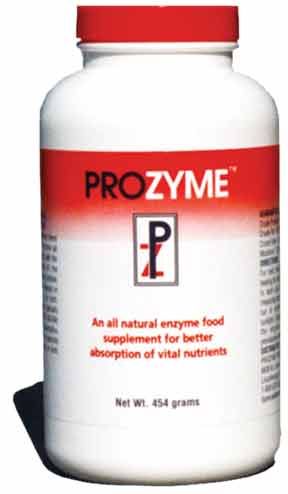[Updated August 22, 2018]
All dogs need digestive enzymes in order to break down their food, making the nutrients available for absorption. In most cases, the pancreas produces ample enzymes and no supplementation is required. Older dogs and dogs with digestive disorders may benefit from enzyme supplementation. Dogs with exocrine pancreatic insufficiency (EPI), where the pancreas is no longer able to produce enzymes, require prescription-strength enzymes in order to survive. Digestive enzymes might also help dogs with food allergies and intolerances.
How Digestive Enzyme Supplements Benefit Dogs
Digestive enzyme supplements can benefit dogs who are unable to produce enough of their own enzymes due to pancreatic damage linked to acute or chronic pancreatitis, EPI, or diabetes. Older dogs produce fewer enzymes as they age, and may also benefit from the addition of digestive enzyme supplements, especially if they are underweight. If your dog suffers from gas, borborygmus (rumbling noises from the gut), frequent diarrhea, soft or voluminous stools, or stools that contain a lot of mucus, digestive enzymes may help.
Enzyme supplements are derived from plant, animal, and microbial sources. Animal-source enzyme supplements contain pancreatin from the pancreas of pigs or cows. Pancreatin provides protease, lipase, and amylase, used to digest protein, fat, and carbohydrates, respectively. These supplements may work best for dogs with pancreatic damage.
Microbial and plant-derived enzymes are frequently used together. Microbial enzymes are usually synthesized from fungal sources via fermentation, and have strange-sounding names, such as various Aspergillus fermentation products, Trichoderma longibrachiatum, and Rhizopus oryzae. Plant-derived enzymes include papain (from papaya) and bromelain (from pineapple). These enzyme products often supply lactase (used to digest lactose), cellulase (cellulose), and other enzymes in addition to protease, lipase, and amylase. Microbial and plant-derived enzymes are often combined with probiotics (beneficial bacteria) for more complete digestive support, and are usually less expensive than pancreatin products.
Digestive enzyme supplements may help reduce coprophagia (eating feces), both by making the stool less attractive, and by increasing nutritional absorption so that the dog may no longer seek to eat stools.
Cautions To Take with Digestive Enzymes
While many dogs benefit from the use of digestive enzymes, they can also cause undesirable side effects. If you give your dog a digestive enzyme product that causes loose stools, gas, vomiting, or signs of discomfort after eating, discontinue right away. You might try a different type of enzyme product to see if that works better for your dog. Problems are more common with pancreatin products; microbial and plant-derived enzymes are less likely to cause any adverse effects.
Enzymes are deactivated by temperatures above about 120 degrees, so do not warm foods after adding digestive enzymes, or add enzymes to hot foods.
Enteric-coated products made for humans might pass through a dog’s shorter digestive tract without being utilized.
Digestive Enzyme Dosage for Dogs
There are no specific dosage recommendations for digestive enzymes other than the prescription-strength enzymes needed for dogs with EPI, which are often highly concentrated (for example, 6x means it is 6 times stronger than plain pancreatin). These products should not be used for healthy dogs. Follow label instructions when using products made for dogs, or adjust the dosage of human products for the size of your dog (e.g., half the human dosage for a dog weighing 50 to 60 pounds).
See “Exocrine Pancreatic Insufficiency in Dogs,” for more information on EPI.
Recommended Digestive Enzymes for Dogs:
There are many different brands of digestive enzyme supplements. Here are a few examples:
Animal Essentials’ Plant Enzymes and Probiotics (888-551-0416; animalessentials.com)
In Clover’s OptaGest (877-987-7387; inclover.com)
NaturVet Digestive Enzymes (888-628-8783; naturvet.com)
PetLabs360’s DigestAbles (888-738-7360; pl360pets.com)
ProZyme’s ProZyme Original and ProZyme Plus (800-522-5537; prozyme.com)
Thorne Veterinary’s DipanVET and Similase (800-228-1966; thorne.com)






